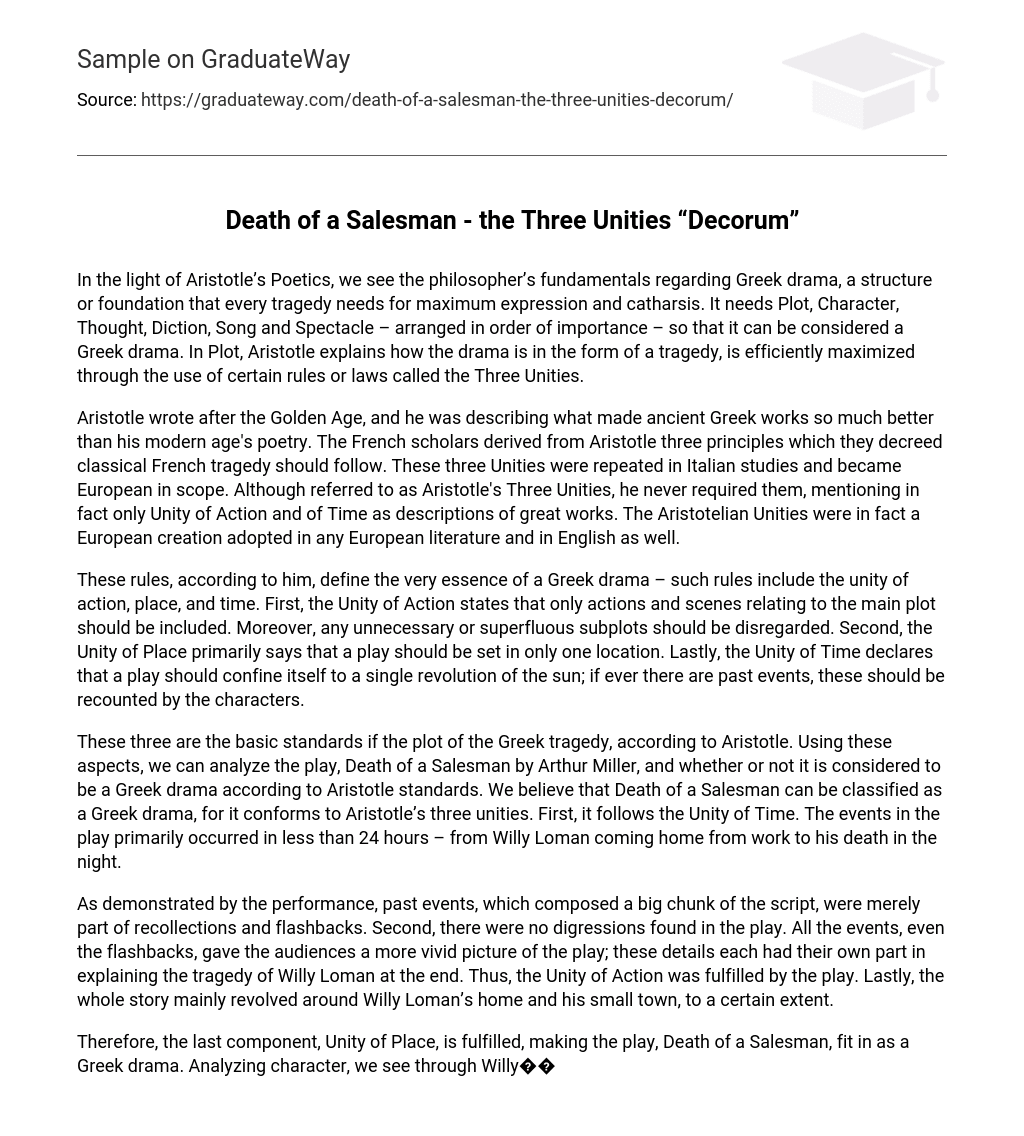According to Aristotle’s Poetics, Greek drama requires certain elements for optimal expression and catharsis. These elements include Plot, Character, Thought, Diction, Song, and Spectacle, arranged in order of importance. Aristotle emphasizes that the drama should abide by the Three Unities, a set of rules or laws that enhance the efficiency of the tragedy.
Aristotle’s assessment of ancient Greek works compared to his modern age’s poetry has been regarded as a significant influence on classical French tragedy. French scholars identified three principles based on Aristotle’s writings, which they determined should be adhered to in classical French tragedy. These three Unities were further embraced in Italian studies and eventually became widely recognized throughout Europe. Interestingly, although these principles came to be known as Aristotle’s Three Unities, he never explicitly mandated them. Aristotle only referred to Unity of Action and of Time as qualities of exceptional works. Therefore, the Aristotelian Unities were essentially a European creation that found its way into various European literary traditions, including English.
According to him, the rules of a Greek drama are defined by the unity of action, place, and time. The Unity of Action states that only actions and scenes related to the main plot should be included. Any unnecessary subplots should be disregarded. The Unity of Place dictates that a play should be set in only one location. The Unity of Time states that a play should take place within a single revolution of the sun. Past events should be recounted by the characters rather than shown on stage.
According to Aristotle, there are three basic standards that define the plot of a Greek tragedy. By applying these aspects, we can examine Arthur Miller’s play, Death of a Salesman, and determine whether it meets the criteria for being considered a Greek drama. We argue that Death of a Salesman can indeed be categorized as a Greek drama because it adheres to Aristotle’s three unities. To begin with, it follows the Unity of Time, as the events of the play take place primarily within a span of less than 24 hours – from Willy Loman returning home from work to his eventual death in the night.
The performance demonstrated that past events, which made up a significant portion of the script, were portrayed as recollections and flashbacks. There were no deviations from the main plot in the play. All events, including the flashbacks, contributed to a more vivid depiction of the play and played a role in explaining Willy Loman’s tragic end. Therefore, the play achieved Unity of Action. Finally, the story primarily revolved around Willy Loman’s home and his small town.
Therefore, the play Death of a Salesman can be considered a Greek drama because it fulfills the last component, Unity of Place. By analyzing the character of Willy and his purpose in life – promising a good life for his family – we see that he becomes a perfect source of catharsis. Willy is consistent and conventional in his role as a “crazy” salesman and controlling father. With the presence of Plot and Character, it is evident that this play truly embodies the characteristics of a Greek drama.





